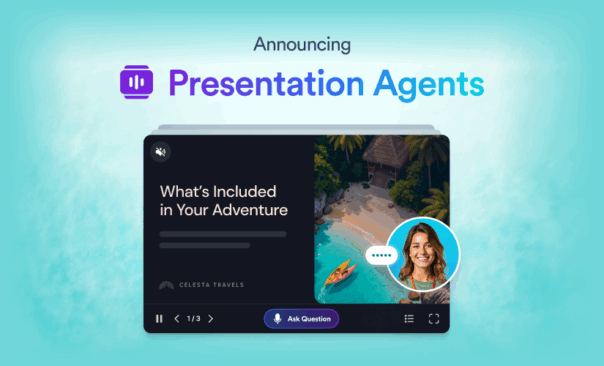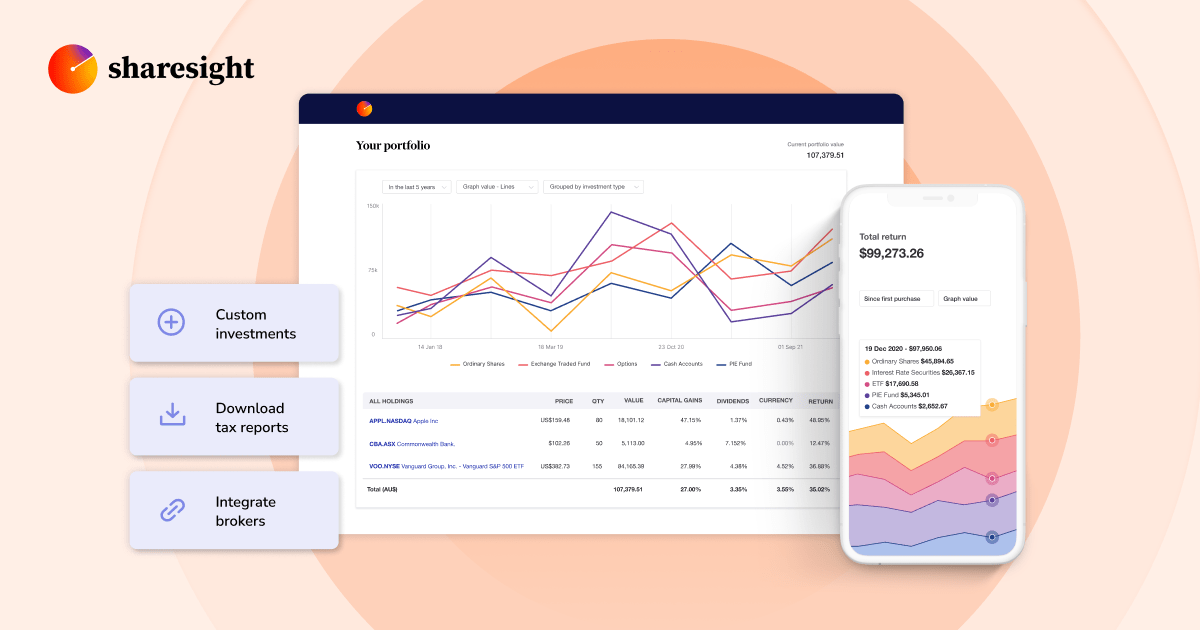
Key Takeaways
- AI in training is a supportive device — not a trainer substitute — providing customized studying, automation, and accessibility.
- Digital brokers and AI instruments can streamline administrative duties, help with grading, and supply custom-made studying experiences.
- AI-powered studying apps and instruments enhance accessibility for college students with disabilities and non-native audio system.
- Main challenges embrace moral considerations, information privateness, excessive prices, and lack of trainer coaching.
- Training 4.0 envisions a future the place AI enhances international literacy and helps customized training at scale.
- Instruments like Jotform AI Brokers make AI in training extra accessible, with no-code options for streamlining communication.
Using synthetic intelligence (AI) in training has turn into some extent of rivalry amongst educators, mother and father, and college students. There are lots of advantages of mixing AI and studying for each lecturers and college students, however the challenges and considerations that come together with it — plagiarism, an overdependence on know-how, and job insecurity — could also be greater than some are prepared to danger.
One of many core considerations for lecturers is that they might quickly be out of labor as a consequence of digital replacements. In reality, although, these instruments are designed to assist lecturers, not change them. From dealing with administrative duties to offering customized options for college students, AI in training is a revolution that may assist all concerned.
Can AI change lecturers?
Regardless of AI’s growing prevalence, it’s extremely unlikely that the know-how might ever change lecturers. Whereas some consider AI can carry out the duties of educators, the depth and complexity of instructing roles are rather more nuanced than an automatic program can grasp.
Professor Neil Selwyn of Monash University in Australia argues that instructional professions “demand limitless quantities of relational and emotional work, complicated tacit data, high-level improvisation expertise, and plenty of different nuances that transcend the formulaic ‘duties’ that office AI is being developed to tackle.”
Analysis from the American Psychological Association (APA) additionally helps this view, displaying that the connection between lecturers and college students “has essential, constructive, and long-lasting implications for each college students’ tutorial and social growth.” These human relationships are important for making a profitable studying surroundings for college students and can’t be simply changed by AI programs, which might’t replicate these dynamics.
However simply because we shouldn’t change lecturers with AI doesn’t imply this revolutionary know-how has no place within the training system.
For instance, an article by the Instructional Data Bureau (ERB) highlights the power of generative AI packages to help lecturers with administrative duties. By dealing with mundane duties, AI options can provide lecturers again valuable time with their college students, enhancing their total classroom expertise.
The function of AI in training
As a substitute of changing lecturers, AI in training needs to be used as a supplementary assistant to educators. There are lots of different makes use of for AI know-how within the classroom.
Customized studying, accessibility, and particular training
Not each scholar will be taught the identical means or on the identical velocity. That’s why customized studying plans are so important for scholar success. Customized studying, also called adaptive instructing, is a course of that includes assessing college students’ wants and creating customized studying plans, setting targets, and monitoring progress to make sure educators meet these wants.
Whereas customized studying advantages college students, it requires quite a lot of further work for educators. That’s the place AI might help. AI chatbots, like Jotform AI Agents, can gather information for educators and help in creating customized studying plans with ease. Generative AI instruments may even create total plans for lecturers to evaluation and approve.
Research are already displaying that AI-driven customized studying can have a big impact on scholar success. For instance, a recent independent study confirmed that college students who had AI-driven customized studying noticed a rise in check scores of round 12 p.c and had been extra engaged than their friends.
These instruments may also be utilized in particular training, offering higher entry to Individualized Training Plans (IEPs) for college students with disabilities. Academics can give attention to assembly their college students’ wants whereas nonetheless producing the required paperwork to succeed in their instructional targets.
AI tools may assist make college extra accessible for college students with disabilities or studying variations. For instance, educators can use generative AI to create alt textual content for display screen readers or translate content material for non-native audio system.
Automated grading
Grading is one other instructional activity the place AI could possibly save lecturers time. Many critics fear in regards to the accuracy of AI grading, however in keeping with latest analysis, AI options typically attain the identical conclusions as lecturers — even when offered with complicated duties like grading essays.
One study by Tamara Tate from the College of California discovered that ChatGPT was inside one level of a human grader 89 p.c of the time. This might imply a human grader would price an essay as a one, and AI could discover it to be a two on a six-point grading scale. Nonetheless, this price of settlement was not constant all through each topic and degree of complexity. Based mostly on her outcomes, Tate concluded that AI grading instruments reminiscent of ChatGPT ought to solely be used for low-stakes functions.
In the end, these instruments can be utilized to avoid wasting time on minor assignments however shouldn’t be relied upon to take over extra subjective or nuanced duties. Utilizing a preprogrammed AI agent to assist grade a multiple-choice quiz might assist lower a trainer’s workload, however educators ought to nonetheless plan on grading assignments like closing exams and time period papers themselves.
Administrative assist
Low-value administrative duties are the place AI agents in education could show most precious. Based on EducationWeek, lecturers spend 29 hours per week — or 46 p.c of their weekly workload — on nonteaching duties. AI might help give them this time again, or not less than scale back the impression of administrative duties on their day-to-day workload.
AI options might help deal with registration, questions, handing over assignments, accumulating suggestions, and extra by means of chatbots. These digital instruments can scale back the burden of mundane duties and make room in educators’ schedules for extra one-on-one studying, complicated grading, and classroom administration.
Language studying apps
Studying a brand new language is tough for even essentially the most gifted college students, and offering every scholar with the individualized consideration they should succeed will be overwhelming for a single trainer. That’s why many educators are turning to AI-driven language studying apps, which give a personalised expertise for college students to thrive.
These apps are so useful for language studying that even the official European School Education Platform (ESEP) advocates for his or her use. The European Union has 24 official languages, together with many minority languages and dialects, making language studying a prime precedence of their faculties.
Of their evaluation of those instruments, the ESEP recognized just a few prime advantages, reminiscent of
- Personalization: AI options can customise studying to match completely different college students’ private, cultural, and academic wants.
- Gamification: AI in faculties could make studying extra participating and enjoyable for college students by gamifying the training course of.
- Actual-time suggestions: Academics can tailor classes to college students’ wants utilizing the information evaluation and insights AI offers because it research college students’ studying habits.
- Accessibility: AI-driven cell apps can present instructional alternatives to college students no matter the place they dwell or their socioeconomic standing.
These options assist college students to excel of their language studying expertise with out overburdening educators to cater to every pupil’s particular person wants.
The advantages of utilizing AI in faculties
It’s clear AI is altering the way in which educators do their jobs. In some ways, this can be a constructive for hardworking lecturers, because it provides them entry to advantages like the next:
- Elevated effectivity in administrative processes: AI in training can considerably enhance the effectivity of administrative duties for lecturers. McGraw Hill Training discovered that 65 percent of teachers use AI to cut back time spent on administrative duties, itemizing it as the highest advantage of this know-how.
- Customized studying experiences tailor-made to particular person wants: McGraw Hill additionally discovered that the second-highest perceived advantage of AI in training was its capacity to supply customized studying experiences for every scholar — with 63 percent of surveyed teachers utilizing this performance.
- Improved accessibility for college students with disabilities: For college kids with bodily disabilities, AI can act as a method to degree the enjoying subject within the classroom. AI can add alt textual content, enhance display screen reader utilization, and extra to make sure all college students obtain an equal instructional expertise.
- Knowledge-driven insights for lecturers and establishments: Knowledge is crucial to bettering any business. For lecturers and directors, AI can analyze information reminiscent of check scores and attendance charges to establish areas for enchancment and success.
The challenges of utilizing AI for training
Though AI could have the potential to supply important advantages for educators, directors, and college students, this new know-how just isn’t with out its share of considerations. In actual fact, 73 p.c of individuals fear in regards to the dangers of AI, and solely 50 p.c consider that the advantages outweigh the prices, in keeping with a study by the College of Queensland.
Whereas every critic could have their very own viewpoint, there are just a few frequent considerations surrounding AI in training.
Moral considerations and potential biases
One of many core considerations over AI use in training is the moral ramifications. Will college students turn into overly reliant on AI? Will AI develop biases based mostly on the information it’s educated with that may skew the accuracy of outcomes? These unknowns make many lecturers immune to the widespread use of this know-how.
Knowledge privateness and safety points
A extra widespread challenge broadly regarding AI is the worry of an absence of information privateness. The Pew Analysis Heart discovered that 81 percent of Americans consider the “data [AI] corporations gather can be utilized in ways in which persons are not comfy with.” This turns into an more and more critical challenge when contemplating the age of AI customers in an academic setting — with 34 percent of educators citing this as a key deterrent towards AI use.
Excessive implementation prices and inequality of entry
Whereas educators have entry to some free AI options, reminiscent of Jotform AI Brokers, many packages are costly. McGraw Hill discovered that 47 percent of educators believed excessive prices had been one of many key obstacles to AI adoption. This creates an inequality hole between faculties with the funding for these options and people with out. These options additionally usually require a dependable web connection, which might turn into one other issue of inequity.
Lack of trainer coaching
With the little spare time lecturers have already got, it could appear unrealistic to count on educators to learn to use AI successfully. Nonetheless, if lecturers don’t have the correct coaching, they might find yourself utilizing AI options incorrectly or ineffectively, making them much less precious total. This lack of time for coaching is one other barrier to AI adoption amongst lecturers, with 38 percent considering it a core factor.
The way forward for AI in training
AI isn’t going anyplace anytime quickly, which is why many instructional consultants are looking for new methods to make use of it to enhance the business. This leads to an concept that some sources, such because the World Financial Discussion board, call Education 4.0.
The concept of Training 4.0 leans closely on using AI in faculties. Though it’s made up of a broad net of concepts, there are some things to bear in mind for the way AI in training could evolve shifting ahead:
- Utilizing machine studying within the classroom: Via machine studying know-how, AI in faculties will turn into higher at analyzing information, performing administrative duties, and extra, opening up new alternatives for lecturers to enhance their school rooms.
- Driving customized training: The development of AI can create higher customized studying and tutoring alternatives for college students. These customized approaches might help assist college students with completely different studying wants with out requiring intensive hands-on time from an educator.
- Bettering international literacy and academic fairness: Not solely will AI assist to enhance college students’ digital literacy, however it will probably additionally present instructional alternatives and entry to college students in areas which can be in any other case underserved, underfunded, or inaccessible.
Discovering the stability of AI in training
Whereas there are cheap considerations in regards to the function of AI in training, lecturers can relaxation simple figuring out that they’re finally irreplaceable. As a substitute, educators ought to contemplate AI to be an asset they will use to enhance their classroom, lighten their workload, and profit their college students. Options like Jotform AI Brokers present a free device for educators trying to elevate their instructing and uncover new alternatives for future success.
Photograph by: Yan Krukau
Source link











![[Bombshell News] Consultants say we’re DANGEROUSLY near a recession 🚨 [Bombshell News] Consultants say we’re DANGEROUSLY near a recession 🚨](https://i.ytimg.com/vi/DvnKvkjdsMc/maxresdefault.jpg)

